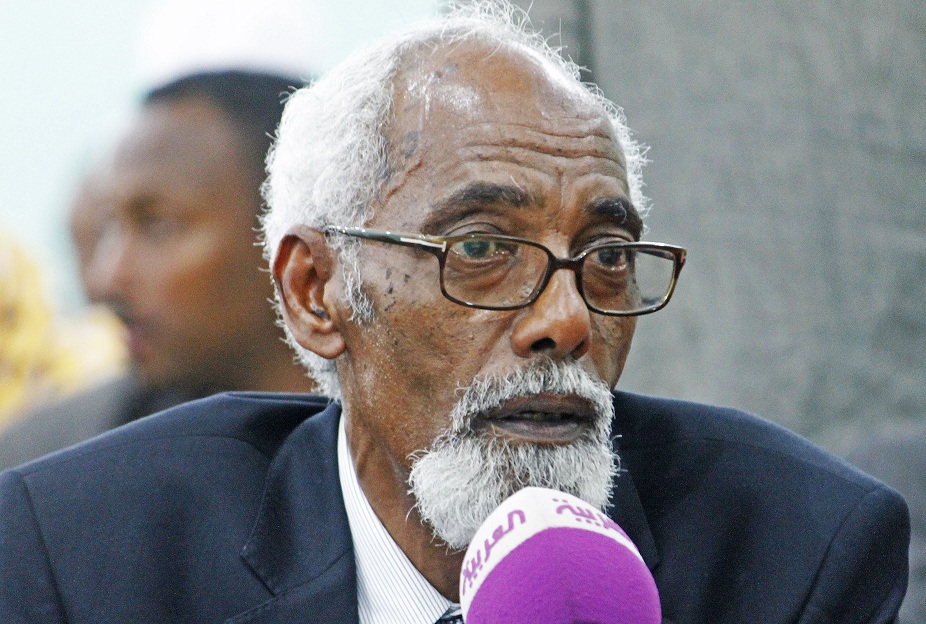In an interview with Daily News Egypt, Sinai Development Authority Chairperson Mohsen Hamid spoke about the development plans of the Sinai Peninsula, the conditions for land ownership and leasing in the region, and other issues that concern the people of Sinai.
What is the Sinai Development Authority?
It is an administrative authority established in the early 1980s after the great victory in the October 1973 war. It contributed to the establishment of current cities and services in Sinai.
Why was the development of Sinai delayed for years?
The development process in Sinai began in the early 1980s, and there was a plan to settle three million citizens there, but there are only 700,000 people living in Sinai now. All the ministries and state institutions were responsible for the delay in implementing the development plans in Sinai.
How can this situation change?
There was only one tunnel connecting Sinai with the rest of Egypt. This was a big obstacle to the development there, but we now have five tunnels, and this will accelerate the development process in the Sinai Peninsula.

What are other factors that disrupted Sinai’s development?
In recent years, terrorism has become a major obstacle in the face of the development of Sinai. Therefore, the 2018 comprehensive military operation (Sinai 2018) was necessary to resume development there after the establishment of new tunnels.
What was the authority’s role in countering terrorism?
After the mosque attack in Bir al-Abed city, the Sinai Development Authority launched a campaign to develop houses, roads, and utilities in the region. We also carried out a cadastral survey of new Bir al-Abed city, which will be the most beautiful in Sinai.
Do current military operations affect the development process in Sinai?
The military operations do not affect the development process in South Sinai. Actually, in some cases, they are helping it move faster. In North Sinai, the military has tightened its grip on the region and somewhat limited the movement of raw materials, but this situation will end soon after eliminating terrorism there.
Did the newcomers and new residents of Sinai integrate with the original community there?
There is wide integration among the people of Sinai, and the authority established many housing projects there to integrate new residents with Bedouins.
Since you have lived in Sinai for many years, how do you see terrorist operations there?
From my experience in Sinai, I realised that terrorism has no relation with the residents of Sinai, who are actually the people who most reject it, because they suffered from its effects on their lives. The Sinai people know very well that those criminals are outsiders.
What are the most important upcoming projects in Sinai?
Sinai will witness a fivefold increase in development after the 2018 comprehensive military operation, as each ministry will take charge of part of the development process there.
What are the last projects in South Sinai?
The last project was the development of Umm Al-Sayed area in Sharm El-Sheikh, which was subject to complete collapse. In addition, the authority completed the development of the Old Market area in Sharm El-Sheikh at a cost of EGP 6m, including the development of entrances to the market in Al-Nour neighbourhood, as well as the police station there. The authority is also working on the development of a number of internal roads in the city at a cost of EGP 8m.
Moreover, the authority provided basic utilities to 604 land plots in Al-Ruwaysat area and established 31 buildings, comprising 496 units, at a total cost of EGP 133.053m. The Sinai Development Authority is working now on paving the roads between residential units in Al-Ruwaysat.
The authority allocated EGP 109m to provide electricity to some Bedouin communities, Jubail area, and some places in El-Tor city.
The development work in El-Tor cost EGP 30m, while the electricity projects in Jubail are worth EGP 9m and will be completed by the end of the current fiscal year 2017/2018.
The authority provided electricity to Ramla 1, 2, 3, and 4 areas, as well as Bedouin communities of Sa’ud, Dabba Ghari, Umm Radeem, Al-Bida’a farm, Al-Huweish, and other places, at a total cost of EGP 70m.
What about the new committee formed by President Al-Sisi and headed by former PM Ibrahim Mahlab to offer land in Sinai?
The newly established North Sinai development committee, led by President Abdel Fattah Al-Sisi’s Adviser for National Projects Ibrahim Mahlab, will focus on water resources and infrastructure projects over 400,000 feddans. The committee is also preparing to tender 156,500 feddans for development projects by the end of this year.
The committee completed infrastructure works of about 125,000 feddans located in Port Said and Ismailia governorates.
The other areas are located in Rabaa and Bir al-Abed and include 156,500 feddans. Another area lies in Quarer region and includes 85,000 feddans in the North Sinai.
This development project is not limited to agricultural projects, but includes the establishment of seven new urban communities, of which two are located in Qantara city. Many industries can be established in these areas, such as sugar and olive factories.
What are the obstacles that faced the project?
Some of the land owners turned their agricultural lands into fish farms. The areas in violation amount to 16,000 feddans. The fish farms consume large quantities of water. Therefore, the violators should pay fines to compensate for the wasted water. Bad security conditions in Sinai also affected the movement of companies and individuals.
What is the next step in the development plan?
The remaining allocated feddans will be offered soon to companies and fresh graduates under an usufruct system only, unlike the first stage, where the government allowed ownership of land. All the companies operating in these areas are Egyptian. It is unlikely to accept foreign companies in the next stage. Any person or company that seeks to obtain a piece of land there must receive the necessary approval to preserve the safety of Sinai.




